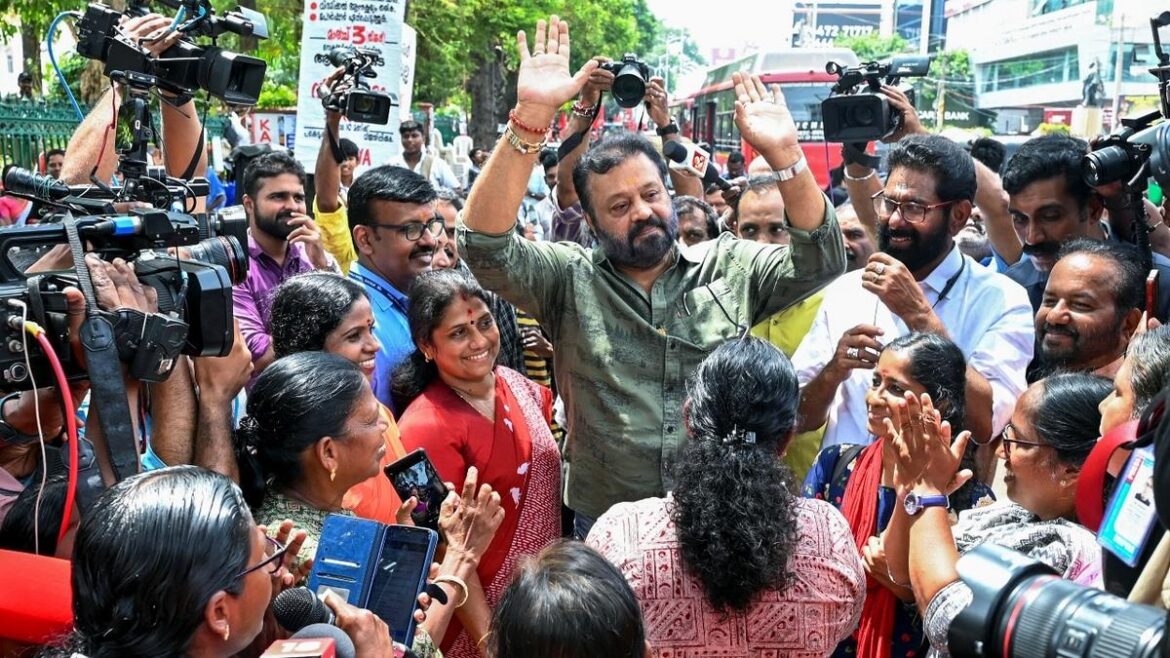ASHA Workers in Kerala Applaud Central Hike, Push for State Action
The long-standing struggle by ASHA workers in Kerala has taken a partial turn, as the central government announced a long-awaited hike in their fixed monthly incentive. While workers acknowledge the Centre’s move as a welcome step, the core of their agitation—pressuring the state to increase their honorarium and retirement benefits—remains unresolved.
Over 10 lakh ASHA (Accredited Social Health Activist) workers across India are expected to benefit from the central government’s decision taken during the 9th meeting of the Mission Steering Group. The fixed monthly incentive has reportedly been increased from ₹2,000 to ₹3,500—a push after nearly 18 years of persistent stalling.
But in Kerala, where a large faction of ASHA workers have been protesting outside the Secretariat since February 10, the celebration is tempered with determination. Their protest is not just about recognition—it’s about survival.
“We Welcome the Move,” Say Protesting Leaders
S Mini, the state vice president of the Kerala ASHA Health Workers Association, has been among the many voices leading months of protests, sit-ins and rallies. Speaking to reporters, she acknowledged the Centre’s announcement, highlighting how the fixed incentive had remained stagnant since the program’s inception.
“We welcome the union government’s decision to increase the fixed monthly incentive. The incentive had been the same so far since the scheme was launched 18 years ago. We have been demanding the Centre to increase this,” Mini said.
She also reminded the public that the decision follows promises made by state MPs who had visited the protest site earlier this year:
“We carried out two Parliament marches. State MPs who visited us on Feb 10 assured us that they would put pressure on the Centre. Today’s announcement is clearly the result of that pushing,” she added.
Timeline of ASHA Workers’ Protest in Kerala
To really understand what’s going on here, it helps to trace back the timeline of this movement.
- February 10: ASHA workers launch an indefinite protest outside the Kerala Secretariat.
- February–March: Multiple meetings and failed negotiations with state officials.
- March: Several MPs from Kerala visit the protest site and pledge support.
- Early July: Reports emerge of the Centre approving an incentive hike from ₹2,000 to ₹3,500.
- Now: ASHA leaders acknowledge the hike, but stand firm on their local demands.
The proposed hike in retirement benefits by the Centre—from ₹20,000 to ₹50,000—was also met with appreciation, though it doesn’t come close to what the Kerala ASHA workers are asking from the state: a retirement package of ₹5 lakh.
Community Voices and Ground-Level Sentiments
If you walk past the Secretariat in Thiruvananthapuram, you’d likely hear chants, slogans, and a sort of wearied excitement. Many of the protesting workers are women who’ve spent years—some decades—serving in rural and urban communities, often without proper recognition or compensation.
“Do we not deserve dignity in old age?” one ASHA worker muttered under her breath, unwilling to share her name. It was not resistance, just fatigue. She’s been there since February.
And still, no clear plan from the state government.
The current honorarium provided by the Kerala government stands at ₹7,000—less than the monthly rent in some towns. Workers are demanding that figure be tripled to ₹21,000. Many believe the state has the resources. “It’s just about political goodwill,” one organizer sighed. Perhaps they’re right.
What the Central Boost Actually Means
So, what changes with the Centre’s decision? Let’s break it down:
- An increase in the fixed monthly incentive from ₹2,000 to ₹3,500.
- A proposed hike in retirement benefits, from ₹20,000 to ₹50,000.
- Greater recognition across national health departments of ASHA workers’ role.
Yet, this does not cover other entitlements that ASHA workers in Kerala are fighting for, such as medical insurance, travel allowances, and hazard pay. It’s still far from a complete package.
The State Government’s Silence
Here’s the difficult part. The Kerala government has not yet issued any official statement acknowledging the Centre’s decision or indicating a re-evaluation of their current honorarium policy.
The public health department has remained quiet, even as opposition voices and various civil society groups urge them to act. For many ASHA workers, the silence is deafening. For now, they’re left to interpret political signals—or the lack of them.
Mini made it clear: their strike will continue.
“But, we will end our ongoing agitation only when the state government increases the honorarium as demanded by us,” she said, emphasizing the urgency. “The authorities here can easily approve this if they want to.”
A Larger Pattern Across States?
Kerala may be in focus here, but this isn’t an isolated episode. ASHA workers across multiple states have at different times raised similar demands. Underpaid and overworked, many risk health and personal safety for just a few thousand rupees a month.
Some observers say the Centre’s move may set a ripple effect in motion. Whether states will follow through, though, is another matter.
What’s Next?
In the coming weeks, several key developments could unfold:
- Formal notification from the Centre confirming the incentive hike.
- Potential pressure from MPs and opposition leaders on the Kerala government to act.
- Increased media attention on the ASHA workers’ story as other states watch closely.
- Possibility of coordinated protests in other regions if local demands go unmet.
For now, the sit-in at the Secretariat continues—tents, banners, shared meals, and all. One protester, stirring a pot of rice on a dusty burner, looked up and said, more quietly than angrily: “We are here to serve. But we won’t be silent anymore.”
So, while the Centre’s move marks a small victory, it’s not the last word. Not yet.

